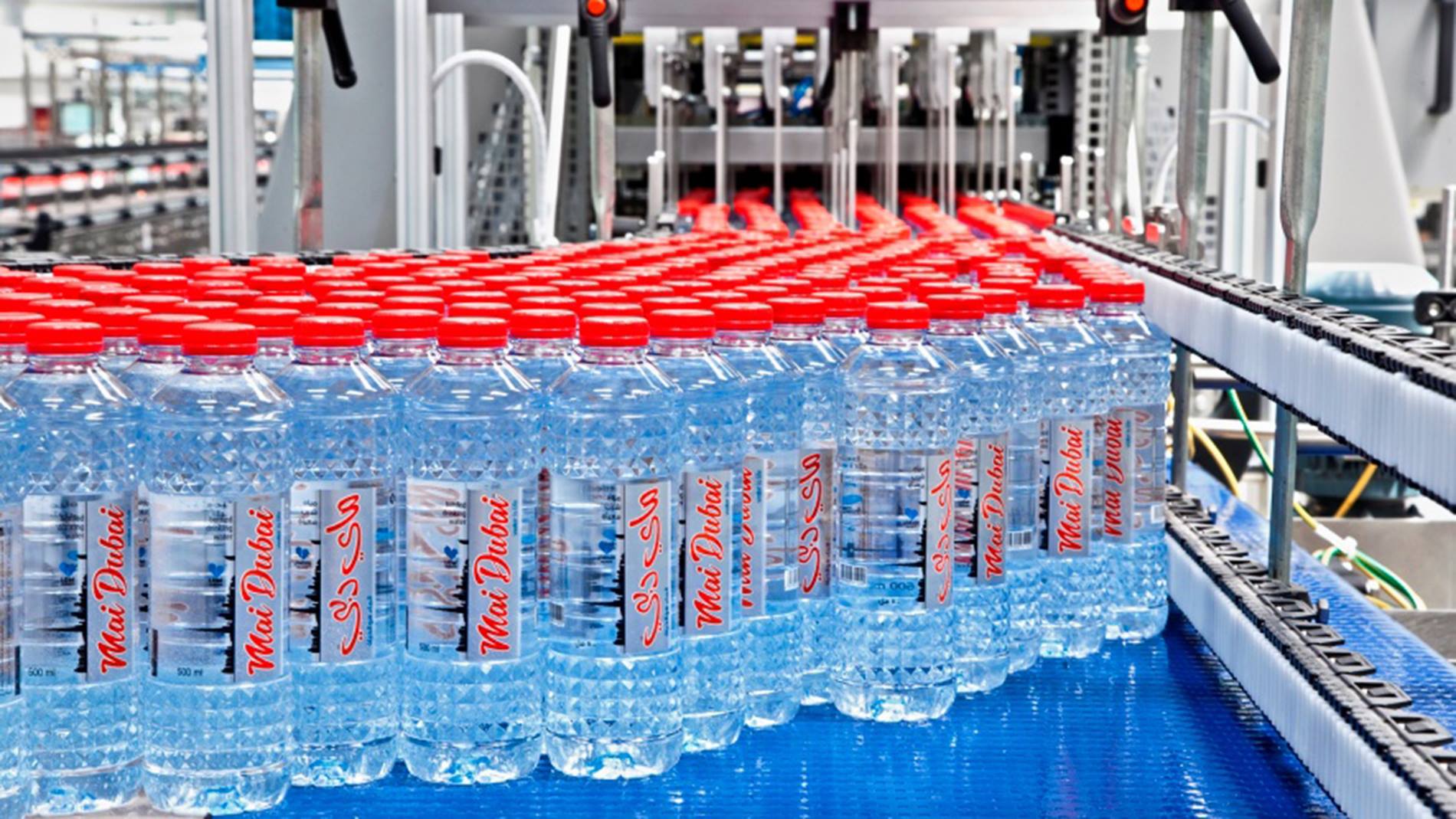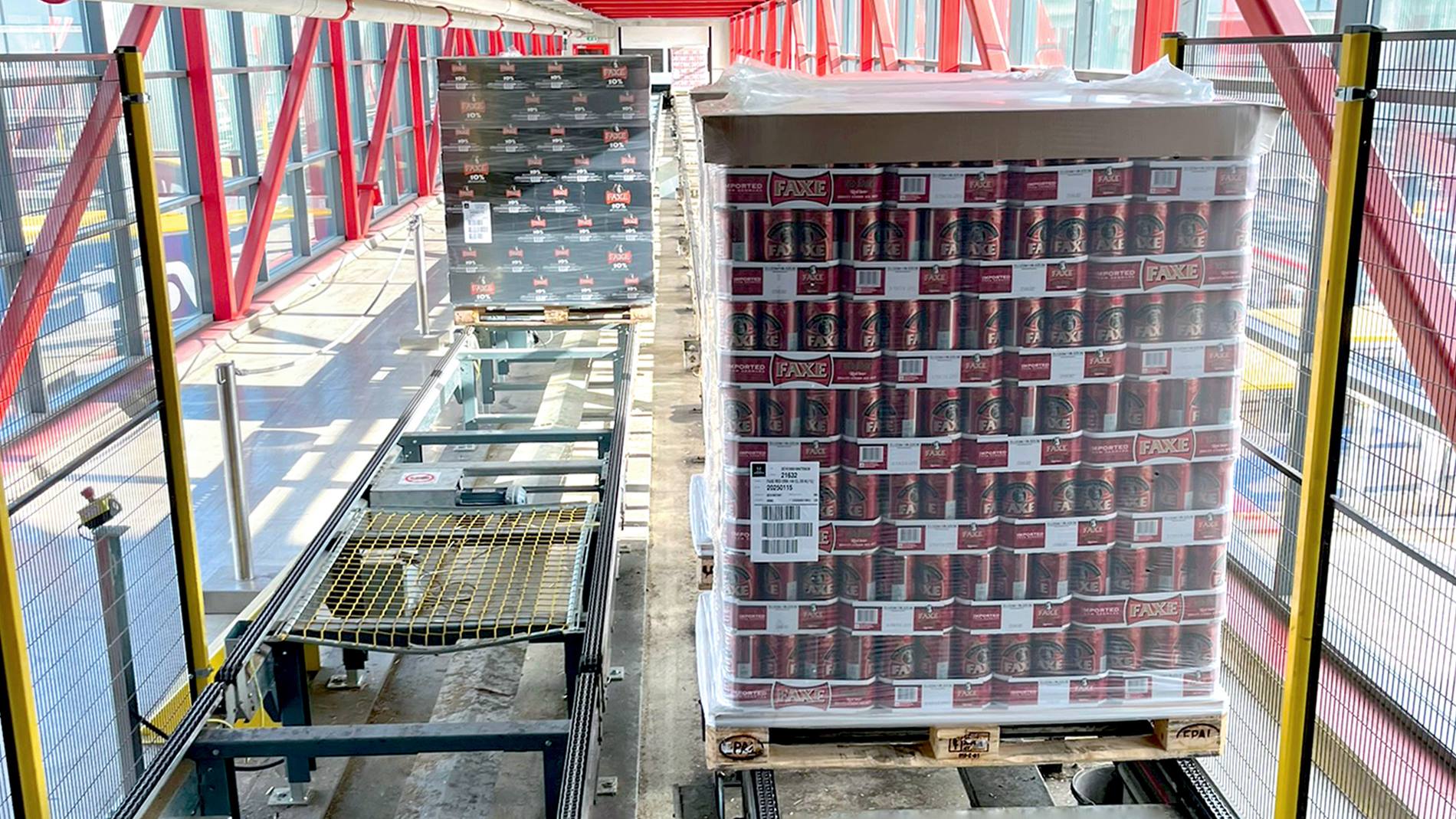From bottles to barrels: How to perfect your beverage warehousing operations

At Swisslog, we’ve seen first-hand how automation, software, and robust infrastructure are enabling beverage companies to turn these challenges into opportunities — improving efficiency, resilience, and competitiveness.
The challenges beverage warehouses must overcome
Let’s explore the key operational hurdles beverage warehouses face, and how smart technologies are helping producers solve them.
Beverage logistics is a balancing act between precision, speed, and flexibility. From maintaining cold chain integrity to managing an ever-expanding range of SKUs, the complexity of modern operations continues to grow.
Temperature control remains critical for categories like dairy-based drinks, juices, and certain alcoholic beverages, where even small fluctuations can affect quality and compliance. Maintaining consistent conditions across storage, handling, and distribution requires precision and full visibility — something traditional systems can no longer deliver alone.
At the same time, the variety of products has never been greater. With hundreds or even thousands of SKUs in multiple formats, flavours, and packaging types, producers face constant pressure to optimise space and ensure accurate batch and expiry-date tracking. Efficient slotting and picking are essential, but so too is agility — the ability to adapt fast when product lines or demand patterns change.
The physical nature of beverages adds another layer of complexity. Heavy pallets, glass bottles, and aluminium cans require reinforced infrastructure and equipment that can handle high loads safely. Here, automation is not just a tool for efficiency — it’s a safeguard against product damage, workplace injury, and bottlenecks that slow the entire supply chain.
Finally, demand is anything but predictable. Seasonal peaks around summer and holidays are now joined by short-lived surges driven by social media trends or limited-edition releases. Warehouses must be flexible enough to reposition inventory, re-prioritise picking, and scale outbound processes almost in real time.
These challenges are deeply interconnected, and together they highlight why beverage producers are embracing smarter, data-driven technologies. From automation to advanced software, the next generation of warehouse solutions is giving producers the control, visibility, and adaptability they need to operate with confidence in a fast-moving market.

How smart technologies provide the answer
High-density, flexible storage
Swisslog’s Vectura stacker cranes and PowerStore shuttle systems deliver high-density storage in ambient, chilled, and frozen environments. Built for heavy loads, they provide the scalability and resilience beverage producers need.
Intelligent inventory management
Through our SynQ software, producers gain real-time visibility of stock, expiry-date tracking, and first-to-expire picking. Integration with leading ERP systems ensures a seamless flow of information from production through to distribution.
Forecasting with intelligence
Forecasting no longer depends solely on seasonal peaks. AI-enhanced WMS and ERP systems support smarter replenishment and agile slotting, helping producers respond to demand signals from promotions, social media, and market trends.
Energy efficiency and sustainability
Our systems are designed to optimise energy use. Regenerative drives on cranes and conveyors feed surplus power back into the grid, while smart energy management minimises overall consumption. Automation also supports waste sorting and recycling — a critical sustainability priority.

Proven success in beverage automation
Swisslog customers are already realising the benefits of automation. Royal Unibrew, for example, has expanded its warehouse automation three times, achieving around 60% space savings with Vectura cranes, conveyors, and SynQ software. Their operation is now both scalable and resilient.
Søren Hansen, Warehouse Manager at Royal Unibrew, said: “A significant amount of planning and logistics work was required to successfully install the new cranes in the old warehouse and build and equip the new warehouse while ensuring that the regular flow continued without disruptions. Together with Swisslog, we have done an excellent job and avoided major disruptions.”
Pepsi Bottling Ventures (PBV) in the United States implemented Swisslog’s PowerStore pallet shuttle system in its Garner, NC facility. This move enabled PBV to increase storage capacity by 61.5% within its existing flat-ceiling warehouse, without the need for costly structural expansion.
Matthew Bucherati, SVP Operations Pepsi Bottling Ventures, said: “An overall traditional expansion would have been less desirable because it builds in permanent, long- term inefficiencies through greater fork-lift travel time and facility heating and cooling costs.”

Trends that will define the next decade
Several forces are shaping the future of beverage warehousing. Mobile robotics like AGVs and AMRs are becoming essential for handling heavy or fragile loads safely. IoT sensors are providing real-time insight into temperature and handling conditions, while blockchain is helping ensure traceability and authenticity in categories like alcohol.
At the same time, AI-driven forecasting is enabling producers to align inventory more closely with demand, reducing waste and avoiding shortages. Finally, flexible automation such as mixed-case palletising and shuttle systems is giving warehouses the adaptability needed to support increasingly diverse product portfolios.
Conclusion
Beverage warehouses are no longer just storage facilities — they are strategic assets that enable producers to respond faster, operate smarter, and deliver consistently high quality to the market. The future of beverage warehousing will be defined by resilience, intelligence, and sustainability. Producers who embrace automation, software, and robust infrastructure today are already gaining competitive advantage.







